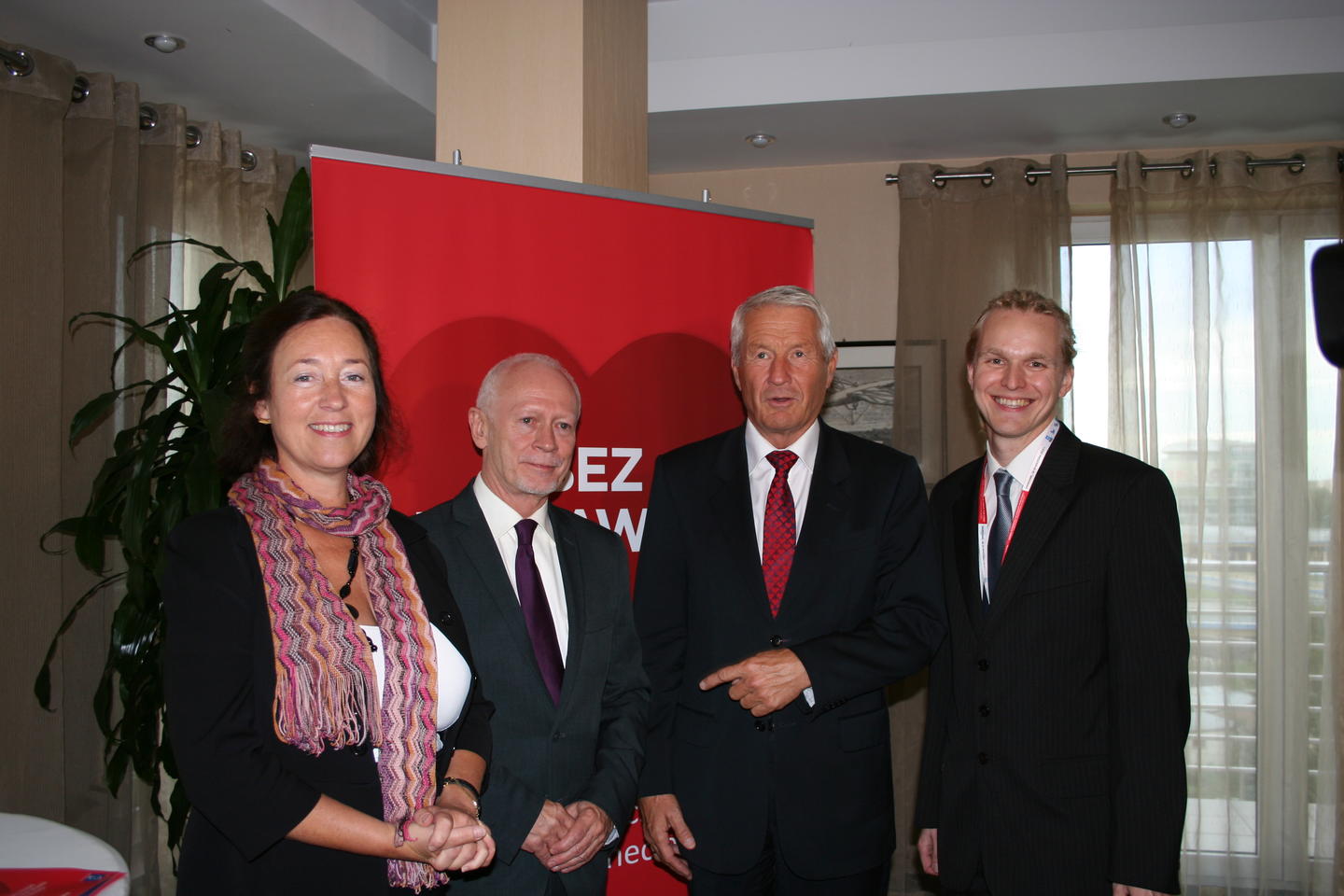The conference ‘The hate factor in political speech - Where do responsibilities lie?’ was organised by the Council of Europe and the Polish Ministry of Administration and Digization and financed by the EEA and Norway Grants.
Discrimination and intolerance
Hate speech is a growing problem in Europe today and can lead to violent actions not only against individuals, but also against groups. In his opening speech at the conference, Secretary General of the Council of Europe, Thorbjørn Jagland, pointed to that discrimination and intolerance still is widespread in Europe today and that minorities such as Muslims and Roma are being marginalised. Although the responsibility is with all of us, a key message from the conference was that politicians have a particular responsibility as their words often have a greater impact, reach wider and multiplies, not least through access to the media and on the internet.
“To win the battle against hate speech, political leaders must assume greater responsibility,” said Jagland.
Indifference is not an option
The conference gathered parliamentarians, journalists, representatives of civil society and international organisations, lawyers, academics and experts to discuss legal, political and societal aspects of how to tackle the hate factor in political discourse. Conclusions from the conference will be brought further to a Ministerial Conference on freedom of expression and democracy in the digital age organised by the Council of Europe in Belgrade 7-8 November.
Knowledge and emphasis on diversity and human rights in education of children from an early age was underlined as important preventive measures against hate speech. The Polish Minister, Michal Boni - who was the initiator of the conference - warned against indifference and underlined the importance of cooperation and solidarity.
In her key note speech, Ambassador for the EEA and Norway Grants Ingrid Schulerud, emphasised that promoting fundamental rights, inclusion of Roma and other minorities and combating discrimination and hate speech are horizontal concerns for the EEA and Norway Grants.
See a video interview with Thorbjørn Jagland and Michal Boni here.
Offensive language widespread
In a recent survey from the EUs Fundamental Rights Agency (FRA), 44 % of respondents said that offensive language about lesbian, gay, bisexual, and transgender people (LGBT) by politicians is widespread. In his internvention, FRA director Morgen Kjaerum suggested that national legislation should be broadened to cover not only hate speech that targets ethnic minorities, but also LGBT people and people with disabilities.
Cooperation to combat hate speech
Iceland, Liechtenstein and Norway mobilise against hate speech in Europe and cooperate closely with FRA, the Council of Europe and beneficiary states of the EEA and Norway Grants. Through the Grants the donors also provide funding worth €147 million to NGOs in Central and Southern Europe and encourage activities promoting tolerance and non-discrimination.
Hate speech is gaining prominence on the European agenda. The conference in Warsaw this week is only one of several high-level conferences addressing the question of hate speech and where the EEA and Norway Grants and the donors take part and contribute and ensuring that the issue receives attention.
Previous conferences includes the conference in Budapest last November, a conference in Oslo in May and the upcoming conference on combating hate crime in the EU organised by FRA in Vilnius 12-13 November.
Parallel to the hate speech conference, 350 NGO representatives from Poland, Norway and Iceland where also gathered in Warsaw for the opening conference of the € 37 million EEA Grants NGO programme in Poland.
